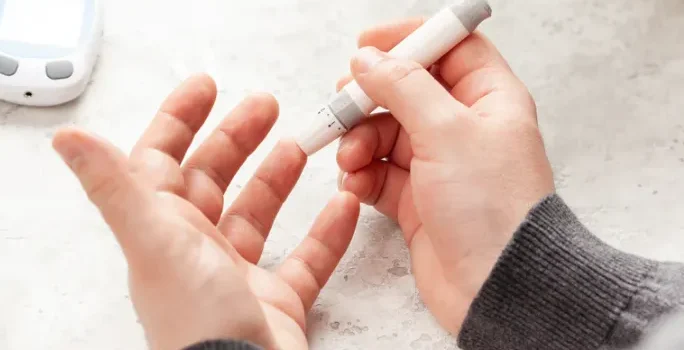Cholesterol plays a crucial role in your overall health, yet many people are unaware of their levels because high cholesterol typically doesn’t present any noticeable symptoms. With nearly 100 million adults in the U.S. affected, getting your cholesterol checked is an essential step in protecting your heart health and preventing serious health issues down the line.
Why High Cholesterol is Often Silent
High cholesterol is often referred to as a “silent” condition because there are no obvious signs or symptoms. It’s possible to have elevated cholesterol levels without realizing it, even if you feel perfectly healthy. Various factors such as genetics, diet, weight, and activity level can influence your cholesterol, and since the condition develops gradually, the only way to know if you have it is through a cholesterol test.
How to Know Your Cholesterol Levels
A simple blood test is the most reliable method to check your cholesterol. This test provides important details about your total cholesterol, LDL (bad cholesterol), HDL (good cholesterol), and triglycerides. Based on these numbers, your doctor can assess your heart health risk and determine if your cholesterol is within a healthy range.
At-home cholesterol tests are not as accurate or comprehensive as a full lipid profile, which is why a professional test is recommended for the most accurate results.
The Risks of High Cholesterol
High cholesterol significantly increases your risk of heart disease, one of the leading causes of death in the U.S. High cholesterol contributes to the buildup of plaque in your arteries, which narrows and hardens them, reducing blood flow. This increases the chances of heart attacks or strokes. Regular cholesterol checks allow you to catch the problem early and take proactive measures to protect your heart.
Early Detection Can Lower Heart Disease and Stroke Risk
In addition to heart disease, high cholesterol also raises your risk for stroke. When plaque blocks blood flow to the brain, it can cause a stroke. While age is a factor in this risk, getting cholesterol checked early in life can help reduce the likelihood of stroke by allowing you to make lifestyle changes before the situation becomes more serious.
Even if you feel healthy, knowing your cholesterol levels helps you take charge of your health and prevent future complications by adjusting your habits early on.
Who Should Get Their Cholesterol Checked?
It was once common advice to only test cholesterol in older adults or those with specific risk factors. However, current guidelines now recommend that everyone, including children, have their cholesterol checked regularly. Here’s a breakdown of who should be tested:
- Adults: All adults should have their cholesterol tested at least once every four to six years. People with existing conditions like high cholesterol, heart disease, or diabetes may need to test more frequently.
- Children and Adolescents: Children should have their first cholesterol screening between ages 9 and 11, with another test during their teenage years (ages 17 to 21). Those with obesity or diabetes should undergo more frequent testing.
- Seniors: Once you reach age 65, cholesterol testing should be done annually. However, it’s best to start testing earlier, as advised by your doctor.
What to Expect from a Cholesterol Test
The process of getting a cholesterol test is quick and straightforward. Typically, a healthcare professional will draw blood from a vein in your arm after you fast for 8-12 hours for the most accurate results. In some cases, a small finger prick may be used. Your blood will be sent to a lab for analysis or tested at the doctor’s office.
After the results are in, your doctor will discuss your total cholesterol, LDL, HDL, and triglyceride levels and compare them against healthy ranges to determine if your cholesterol is within an acceptable range.
The Benefits of Knowing Your Cholesterol Levels
Getting your cholesterol checked offers several benefits, including:
- The opportunity to improve your cholesterol: If necessary, you can make lifestyle changes such as eating healthier, exercising more, or quitting smoking, which can significantly lower your cholesterol.
- Early intervention: If your cholesterol is high, your doctor can recommend medication, which has been proven to lower the risk of heart attack and stroke.
- Better understanding of your heart health: Regular tests allow your doctor to assess your overall cardiovascular risk, helping you make informed decisions about how to protect your health.
In conclusion, getting your cholesterol checked is a simple, effective way to safeguard your heart health. Early detection can save your life by allowing you to take preventive action before cholesterol-related complications arise.











